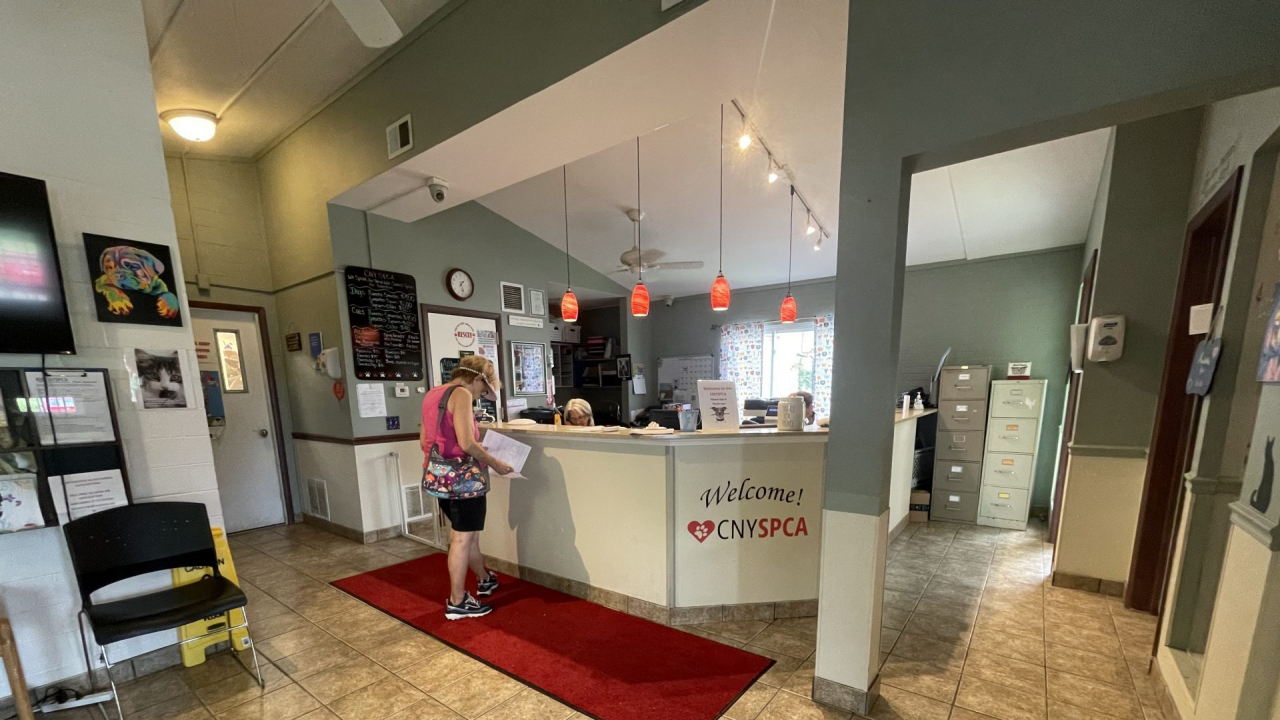Avery Gingerich: “Cool. Can I get your full name please?”
Maria Casella: “Maria Casella.”
Avery: “Can you spell Casella for me?”
Maria: “C-A-S-E-L-L-A.”
Avery: “And Maria spelled M-A-R-I-A?”
Maria: “Yep.”
Avery: “So, you own Barks and Rec, correct?”
Maria: “Yeah, and B and R Bunkhouse.”
Avery: “How long has B and R Bunkhouse been open?”
Maria: “Almost five years.”
Avery: “What led to its opening? Because I’m assuming the other facility has been open longer.”
Maria: “Yes. Barks is my doggie daycare. My boarding facility. And that’s going to be 12 years old this year. If I’m not mistaken.
So, the over…..I don’t know how I want to answer that. It all started with a little dog named Hazel. Who…she lost her home. And then I became friends with a local dog trainer. And then we started talking about the dogs in the city. And how they…have always been an overabundance of dogs coming out of the city. The majority of them are pit bull, terrier mixes of some sort, and they’re a little harder to place.”
Avery: “Gotcha. Umm, I read that there’s some kind of relationship with the Syracuse Police Department. They’ll bring some dogs to the facility?”
Maria: “Yes. Animal Control is under the city of Syracuse Police Department. And the city of Syracuse does their own cruelty (animal rescue). So, We’ll get some cases where they’ll seize some evidence. Sometimes it’s animals. So, between us and another facility, we taken them.”
Avery: “Is the expectation that you just temporarily hold those animals, or they’re given to you to rehouse?”
Maria: “Nope. They are temporarily held until the court case is finished. And sometime that can be fairly quick, if they surrender the animals. Sometimes it can take years, and years, and years.”
Avery: “Years and years? For Animal cruelty cases? What draws it out?”
Maria: “All sorts of things. COVID played a huge part for us, you know? And a lot of postponements. Things like that.”
Avery: “Gotcha. Have you seen any trends in that? An uptick, decline?”
Maria: “No. Not really. I’d say it’s about the same. Maybe a little more.”
Avery: “What would you guess is the average amount of time an animal stays with you guys before being rehoused?”
Maria: “Anywhere from two to four weeks.”
Avery: “What happens if it goes longer?”
Maria: “It depends. We try to transfer to other facilities. Because then they have different people looking, they have different avenues. We also have adoption events like today, where people can come out and meet them. Things like that.”
Avery: “Gotcha. Gotcha. What turned me on to this was reading an article about Second Chance Canine in Jamesville. It was mentioned in the article, they described it as a crisis of overcrowding.”
Maria: “I would say it’s an overcrowding crisis.”
Avery: “How is that network amongst all y’all, the shelters, to reshelter or….?”
Maria: “I would say everyone does their own particular part. Like I said, everyone kind of looks for what they want at different places. Everyone has their own followers and own eyeballs looking at different places is all.”
Avery: “Gotcha. And you mentioned earlier that it’s mostly pit bulls. What makes it hard to rehouse them? Is it just the stigma?”
Maria: “It’s a lot of stigma around it. A lot of them are bred incredibly well. There’s an overbreeding problem coming out of the city too. You know, lots of different things.”
Avery: “Gotcha. And do you find a lot of animals that come here, are they forfeitures or are they strays that get picked up?”
Maria: “We only do strays. We do a handful of owner surrenders, but are usually in different aspects, not directly from an owner.
A lot of the problem we’re seeing is people that can’t keep their dogs, and then everyone is full, it’s not just us, it’s everyone, so then it cuts down on how many owner surrenders shelter can take. So then, they can’t safely surrender them to a shelter, so then they typically open the door and say, ‘good luck.'”
Avery: “I’m new to Syracuse and Central New York. I’m coming from Austin, Texas, where, and this is the first time I’d seen this in my life, a big culture of no-kill shelters. A lot of those places have tremendous resources to keep it going – city, state support. Do you guys have the same kind of support? Is that culture out here?”
Maria: “I can’t really comment on that because I’m not familiar with what Texas has got going on. So that I don’t really know.”
Avery: “Gotcha. I was looking to find data and stuff. And it’s hard to parse out. There’s a lot of turnover I imagine. Is there any kind of big oversight? I know there’s Humane Society of Central New York up in Liverpool. Are they the connector between shelters?”
Maria: “So we have a couple different shelters. We have the SPCA that’s over on a Molloy. We have Helping Hounds right across the street from us. And then there’s your private rescues. All of them we have good relationships with.”





